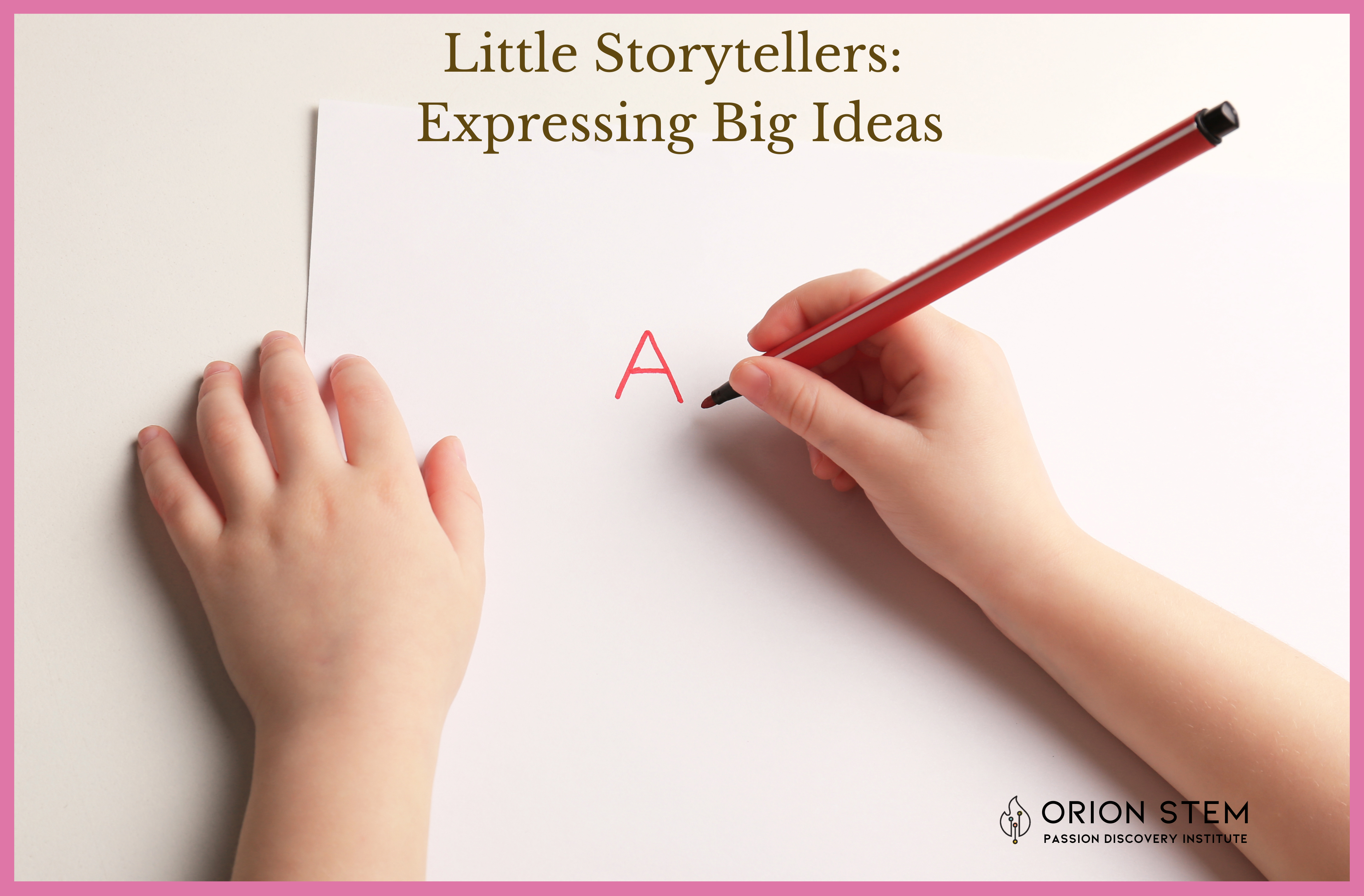
Heather Kostov
Biography of instructor/staff member #1

Every great change begins with a story! In Little Storytellers: Expressing Big Ideas, young learners will discover their voices, craft meaningful stories, and inspire action using Orion STEM Schools’ unique framework for storytelling, grounded in Human-Centered Design Thinking.
Through interactive storytelling exercises, real-world examples, and engaging activities, students will learn to:
Identify real-world problems that matter to them.
Apply Orion STEM Schools’ Human-Centered Design Thinking framework to storytelling.
Find the right audience and decision-makers to create change.
Use emotions and facts to tell persuasive, impactful stories.
Deliver compelling presentations that inspire others to take action.
By the end of this 8-week course, students will gain confidence in storytelling, public speaking, and creative expression—equipping them with the skills to use their voices for real-world impact.
Join us and turn your big ideas into powerful stories that make a difference!
Basic Speaking & Listening Skills: Students should be comfortable participating in simple conversations and following oral instructions.
Emerging Reading & Writing Abilities: A foundational level of reading (even if still developing) and the ability to write or dictate short sentences.
Willingness to Express Ideas: Openness to sharing thoughts verbally or through drawings, short written sentences, or simple recordings.
Curiosity & Imagination: An eagerness to observe the world, ask questions, and explore creative ways to solve problems.
Adult Support: Guidance is needed for uploading work (photos, videos, audio), navigating online tools, and providing constructive feedback.
Basic Digital Navigation: Familiarity with simple tech tasks like using a touchscreen or clicking a mouse to play videos or join virtual calls (with adult help as needed).
These core skills help ensure young learners can fully participate in the interactive and creative aspects of the course.
Course Staff

Biography of instructor/staff member #1

Biography of instructor/staff member #2
1. What age group is this course designed for?
This course is created for children in kindergarten through second grade (approximately ages 5–8).
2. Does my child need advanced reading or writing skills?
No. We welcome all reading and writing levels. Children can share their ideas through drawings, short sentences, or recorded audio/videos. Light adult support may be helpful for younger or emerging readers.
3. How much time will this course take each week?
The total recommended time is about 1–2 hours weekly, which includes watching short videos, doing hands-on activities, and participating in a group discussion or Zoom call. This can be broken into smaller segments based on the child’s attention span.
4. Do I need special technology or software for my child to participate?
You’ll need a reliable internet connection, a device to watch videos and access the discussion forums (computer or tablet), and a way to record or upload your child’s responses (a webcam, smartphone, or tablet camera). No additional paid software is required.
5. How will my child interact with classmates and the teacher?
Children will post their work (text, drawings, short videos) in an online discussion forum. They can also comment on classmates’ posts. There’s typically a weekly live Zoom session for sharing stories, getting feedback, and connecting in real time.
6. What kind of support should I provide as a parent or guardian?
Parents can assist with basic tasks such as uploading photos or videos, helping with reading prompts, and encouraging the child to articulate ideas. An adult presence is also recommended during live Zoom sessions to ensure a safe, positive experience.
7. Is there homework or graded assignments?
The course focuses on creativity and expression rather than grades. Students will complete weekly activities and submit their work, but feedback is largely encouraging and skill-building oriented. There’s no formal grading scale.
8. What if my child is shy and doesn’t like speaking in front of others?
We encourage children to participate in a way that feels comfortable—this could be drawings, short written pieces, or recorded audio/video if speaking live feels too intimidating at first. Over time, we’ll gently help them build confidence.
9. Will my child learn practical skills beyond storytelling?
Yes! They’ll also practice critical thinking, empathy (understanding others’ perspectives), and basic public speaking. These are foundational skills that can be applied to many areas of life and learning.
10. How can we continue practicing after the course ends?
We provide optional “next steps” and fun activities to keep your child storytelling at home. You can also encourage them to notice everyday problems, brainstorm solutions, and share their ideas with friends, family, or community members—even after the course finishes!